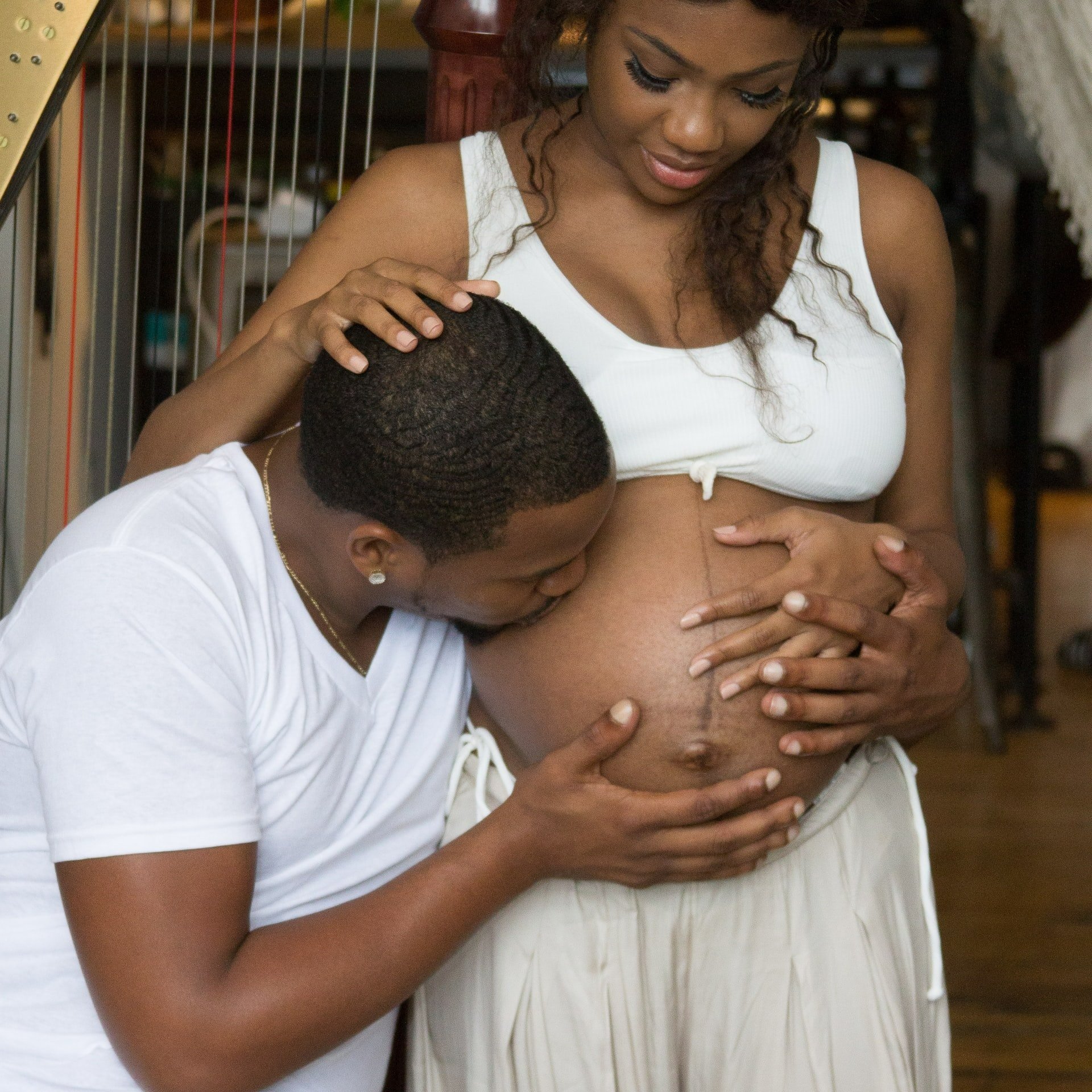
Couples Therapy. Love Shouldn’t Hurt
Hand In Hand For A Stronger Connection
Your new baby is home, and being new parents is challenging your relationship.
Your dream of being parents has come true, and you are now holding your newborn in your arms. However, you realize that raising a child together is more complicated than you thought it would be and that your family life has changed completely. The long nights, the crying, and the worries all take a toll on your mental health and marital satisfaction.
Your relationship with your partner starts to suffer, and you have lost that special connection that brought you together in the first place. Your only focus is your child, and you seem to have forgotten to speak the same language as your partner. You only see their faults and all the things they do wrong.
Neither of you was prepared for the sleepless nights, the exhaustion, and all the responsibilities of taking care of a newborn. You are constantly arguing with each other over small things, and your communication has become strained. You love your new baby, but stress significantly affects your relationship. You feel stuck and unheard.
Your baby is due in a few months, and you're anxious because you feel unprepared to be a parent.
You wanted a child, but you suddenly feel insecure, anxious, and stressed at the thought of becoming a parent. You were sure this is what you wanted, but now you're starting to doubt your decision. Am I going to be a good parent? Will I know how to take care of a newborn? What if I do something wrong? Will my child love me?
All these questions run wild through your mind, and you sometimes feel like you can't breathe. You feel stuck with your decision and know there is no turning back. Am I already a bad parent for thinking like this? Are other parents going through the same thing? What if I made a huge mistake by having this child? Your anxieties overwhelm you, and you can't focus on anything else.
You cut all communication with your partner, and sometimes you blame them for being in this situation. Your relationship starts to suffer, but you can't find the right words to communicate what you are going through and feel like you're alone in this struggle.
Miscarriage and infertility are impacting your relationship.
You both wanted a child with all your heart, but struggling with infertility is stressing your wonderful relationship. Infertility treatments are expensive, and you had to sacrifice your old lifestyle to be able to afford to have a baby. You feel you're no longer worthy of love and affection. You might even blame your partner for the toll this process has taken on your relationship. Sex seems like a chore and impacts your relationship's romantic facet.
You don't know if you want to go on with the fertility treatment, but you are afraid to tell your partner because you fear they might disagree. Or it is clear now that fertility treatment will not work, and you don't know if you should consider more drastic measures, i.e., surrogacy.
You have finally fulfilled your dream of getting pregnant, but you suffered a miscarriage, and you don't know how to handle your grief. You're struggling and find no comfort in the kind words of your partner. You become resentful. Your partner becomes a reminder of your failure to give them a baby. You can't find the strength to focus on your relationship and have lost any interest in being present. You still love your partner but have lost your will to show affection.
Being Partners Doesn't Have to Be This Difficult
Infertility and miscarriage often trigger relationship issues. They can take a toll on a relationship both financially and emotionally. A hormonal treatment is never easy on either of the partners, and romantic relationships often suffer due to mood swings, frustration, and a constant feeling of hopelessness.
On the other hand, the presence of a newborn can change both partners and reinvent the dynamic of their relationship. Your entire focus shifts from showing love and affection to your partner to caring for your child. Both partners usually do their best to be the best parents they can be. However, in their journey toward being the perfect parent, many forget to also be a partner.
Partners begin to drift apart, finding it hard to communicate with each other. The stress begins to slowly chip away at the connection they felt when their baby first arrived. The tension between them grows more and more each day as they argue over trivial things. They become strangers in their own home.
What Is Couples Therapy?
Couples therapy or marriage counseling can help partners understand each other better, develop better communication skills and improve their relationship dynamics. One of the most essential benefits of couples therapy is that it can also be used to help resolve conflicts and build trust between two people in a committed relationship. Many people consider it a last resort for couples in serious trouble, but that's not always the case.
Marital therapy is a form of psychological therapy that focuses on improving overall relationship satisfaction in couples. It is specifically designed to help couples resolve conflicts and improve their relational skills. Couples therapy sessions help partners to manage their differences healthily and constructively.
Talking to a marriage counselor not only allows each partner to express their needs without fear of criticism, but it also creates a safe space conducive for mutual understanding and respect.
Building Security in your Relationship
I can help you foster healthy communication, increase mutual understanding, and strengthen your connection.
I specialize in:
helping women and their partners overcome the challenges in their relationships due to their family-building and parenting journey.
working with couples who are struggling with infertility, loss, and parenting stressors and the tremendous impact they have on their relationship.
working with individuals and couples building their family through assisted reproductive technologies.
working with all types of couples looking for healthy relationships and improved individual mental health.
PACT therapy (Psychobiological Approach to Couples Therapy). PACT's core principle is to place the couple's relationship first and learn how to care for each other while caring for a baby.
Couples Therapy Can Help
Build communication and help you feel like you are heard and supported by your therapist.
Address issues of equality in parenting and care of a new baby.
Maintain love and connection with each other.
Enhance the relationship by identifying what you love about each other and remember the “sparks” you felt in the beginning.
Identify your “trigger points” and “hot spots” and learn how to enhance communication and get unstuck.
Learn to effectively and gently hold each other accountable.
Manage the throes of early parenthood.
Learn to be in each other’s care while caring for a new child.
Build kind and respectful communication with each other.
Integrate the grief that comes with miscarriage in a way that allows you to honor your loss and move forward at the same time.

Let's build your confidence and get you back to being the couple you dreamed of being.
Areas Of Expertise
Adjustment pre/post IVF
Couples with loss
Couples with infertility
Parenting Issues after the child is born
Uncertainty about Adoption/Childbearing
Uncertainty About 3rd party reproductive technologies
Conflict of interest about the reproductive assistance the couple is willing to consider
Disclosure/sharing of IVF process/gamete donation to friends and family
Restoring sexual relationship/intimacy, bond after IVF, losses, and a new baby
Financial strain and preparedness for IVF

Frequently asked questions about Couples Therapy
FAQs
-
One of the first signs that your current relationship is struggling is a breakdown in communication. If you and your partner have stopped talking to each other, it’s time to take a step back and reassess the situation. Another sign is a lack of intimacy and affection. Furthermore, if you are constantly arguing and getting into heated disputes, your relationship will undoubtedly benefit from the guidance of a couples counselor and a personalized treatment plan. Another sign that shows you have unresolved conflicts is if you and your partner are continually avoiding each other. Whether it’s due to a lack of communication or a feeling of emotional distance, it’s essential to address the issue.
-
The first step is to secure your free 15-minute consultation. If we are a good fit, we will schedule your initial evaluation and subsequent therapy sessions.
-
You are the expert of you. You can take your time making this decision. You can reach out to me anytime.
-
The following are the insurances I am credentialed with through Hello Alma: Optum and Aetna (within these are the following programs):
Cigna
Optum
• United Health Care
• United Health Care shared Services (UHSS)
• GEHA-United Health Care Shared Services (UHSS)
• United Health Care Global
• United Health Care Exchange Plans (ONEX)
• Oscar
• Harvard Pilgrim
• Oxford
• UHC Student Resources
• UMR
• All Savers (UHC)
• Health Plans Inc
• Surest (formerly Bind)
Aetna
• Meritain
• Nippon
• Allied Benefit Systems
• GEHA-United Health Care Shared Services (UHSS)
• Trustmark
• Trustmark Small Business Benefits
• Health Scope
• Christian Brothers Services



